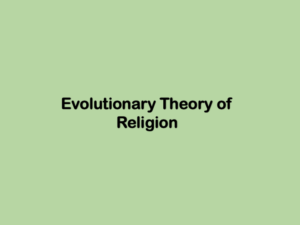Daniel 1: 9-21 Daniel Becomes a Vegan
After deciding he would not eat the king’s food and drink, Daniel negotiates a plan to keep his head.

In the previous post, we read that Daniel decided to not drink and eat of the king’s food. The rest of chapter 1 is straight forward, so let’s jump right into the text.
But Daniel purposed in his heart that he would not defile himself with the king’s dainties, nor with the wine which he drank; therefore he requested of the prince of the eunuchs that he might not defile himself. Now God made Daniel to find kindness and compassion in the sight of the prince of the eunuchs. The prince of the the eunuchs said to Daniel, “I fear my lord the king, who has appointed your food and your drink. For why should he see your faces worse looking than the youths who are of your own age? So would you endanger my head with the king.” Then Daniel said to the steward whom the prince of the eunuchs had appointed over Daniel, Hananiah, Mishael and Azariah, “Test your servants, I beg you, ten days, and let them give us vegetables to eat, and water to drink. Then let our faces be looked on before you, and the face of the youths who are eat of the king’s dainties; and as you see, deal with your servants.”
So he listened to them in this matter, and proved them ten days. At the end of ten days their faces appeared fairer, and they were fatter in flesh than all the youths who ate of the king’s choice dainties. So the steward took away their dainties, and the wine that they should drink, and gave them pulse.
Now as for these four youths, God gave them knowledge and skill in all learning and wisdom: and Daniel had understanding in all visions and dreams.
At the end of the days which the king had appointed for bringing them in, the prince of the eunuchs brought them in before Nebuchadnezzar. The king talked with them; and among them was found no one like Daniel, Hananiah, Mishael and Azariah: therefore stood they before the king. In every matter of wisdom and understanding, concerning which the king consulted them, he found them ten times better than all the magicians and enchanters who were in all his realm. Daniel continued even to the first year of king Cyrus.
Daniel 1: 8-21
For the first part of Daniel’s plan, he sought permission from the official placed over him, the commander of the officials.
But Daniel purposed in his heart that he would not defile himself with the king’s dainties, nor with the wine which he drank; therefore he requested of the prince of the eunuchs that he might not defile himself.
Daniel 1: 8
We can assume the text is referring to Ashpenaz, although the title “prince of the eunuchs” here is slightly different than the previous title, “master of his eunuchs” mentioned in verse 3. Regardless, Daniel first approached him to seek permission. The commander was open to granting Daniel’s request, but he had some misgivings.
Now God made Daniel to find kindness and compassion in the sight of the prince of the eunuchs. The prince of the the eunuchs said to Daniel, “I fear my lord the king, who has appointed your food and your drink. For why should he see your faces worse looking than the youths who are of your own age? So would you endanger my head with the king.”
Daniel 1: 9-10
From Ashpenaz’s comments, it appears that execution was a very real risk for those who displeased Nebuchadnezzar. If the king had been willing to execute one of his officials for a minor infraction, he certainly would not have had any hesitation to execute any of the Jewish exiles. Yet Daniel felt so strongly about his religious convictions that he sought a compromise.
Then Daniel said to the steward whom the prince of the eunuchs had appointed over Daniel, Hananiah, Mishael and Azariah, “Test your servants, I beg you, ten days, and let them give us vegetables to eat, and water to drink. Then let our faces be looked on before you, and the face of the youths who are eat of the king’s dainties; and as you see, deal with your servants.”
Daniel 1: 11-12
Next, Daniel bypassed Ashpenaz and asked the official directly in charge of the Jewish students if he could have a modified diet. Daniel proposed he and his three friends would eat only vegetables and water. Leviticus chapter 11 deals solely with animals and insects, so it can be inferred that any vegetables are allowed. By eating only vegetables and drinking only water, Daniel ensured that he would not become unclean by eating a forbidden meat.
The text does not give a reason why Daniel refused to drink wine. It has been suggested that the Babylonians mixed blood into their wine, but there does not seem to be any historical support for this supposition. While drunkenness is clearly condemned in both the Old Testament and the New Testament, wine by itself is not prohibited.
So he listened to them in this matter, and proved them ten days. At the end of ten days their faces appeared fairer, and they were fatter in flesh than all the youths who ate of the king’s choice dainties. So the steward took away their dainties, and the wine that they should drink, and gave them pulse.
Daniel 1: 14-16
At the end of the ten days, the overseer thought the four youths seemed healthier than the other students who ate the meat and drank the wine. Since Daniel’s diet was noticeably lacking in protein (pulse is vegetables and seeds), one would expect him to appear leaner than the other students and not “fatter in flesh.” Perhaps there was a supernatural element to Daniel’s appearance.
Now as for these four youths, God gave them knowledge and skill in all learning and wisdom: and Daniel had understanding in all visions and dreams.
Daniel 1: 17
Because of their conviction, God allowed the four youths to excel in their studies. Daniel was also given the ability to interpret dreams and visions. This is reminiscent of Joseph’s ability to interpret dreams in Genesis. In chapter 2, Daniel got a change to exercise his gifts.
At the end of the days which the king had appointed for bringing them in, the prince of the eunuchs brought them in before Nebuchadnezzar. The king talked with them; and among them was found no one like Daniel, Hananiah, Mishael and Azariah: therefore stood they before the king. In every matter of wisdom and understanding, concerning which the king consulted them, he found them ten times better than all the magicians and enchanters who were in all his realm.
Daniel 1: 18-20
Daniel seems to have navigated the rest of his training without further difficulty. At the end of the 3 years, Nebuchadnezzar interviewed each of the students and declared that Daniel, Hananiah, Mishael and Azariah were the top students. He also declared that they were wise and smarter than the magicians and conjurers of Babylon, collectively known as the Chaldeans. As we mentioned before, the term Chaldeans is used here for a group of professionals, and not the ethnic group. Nebuchadnezzar’s declaration certainly didn’t earn Daniel any favors with the Chaldeans, and they continued to cause problems for Daniel throughout his career.
Daniel continued even to the first year of king Cyrus.
Daniel 1: 21
Cyrus, a Persian, conquered Babylon in 539 BC. We know from later chapters that Daniel lived to at least 537 BC, so Daniel served the entire length of the Neo-Babylonian kingdom and continued into the Persian rule. If Daniel completed his training in 603 BC, this means Daniel served the Babylonian kings for 64 years!
Obedience versus Civil Disobedience
It is interesting that Daniel did not refuse to serve the Babylonians. We must keep in mind that he was only young teenager, around 12-15 years-old and he isolated from his parents and the social support network he would have back in Jerusalem. He was completely at the whim of the Babylonian officials and there was a very real possibility that he would be executed for any perceived disobedience. We have to reconcile this with the fact that Daniel became a high official in the Babylonian government and served the king who ultimately destroyed his homeland. This raises an interesting question. When should a believer comply with the demands of the government and when should he refuse? When is an oppressive government God’s will and what is the role of civil disobedience? We’ll continue to explore this topic throughout the rest of Daniel.
Even at this point of the story, Daniel provides an example of staying true to one’s faith while serving in a culture that is antagonistic to your faith. God rewarded Daniel’s steadfastness with supernatural protection, giving him understanding supervisors, good physical health, and special intellectual gifts that made him valuable to the Babylonian king.
Previous: Daniel 1: 5-8
Next: Daniel 2: 1-16




